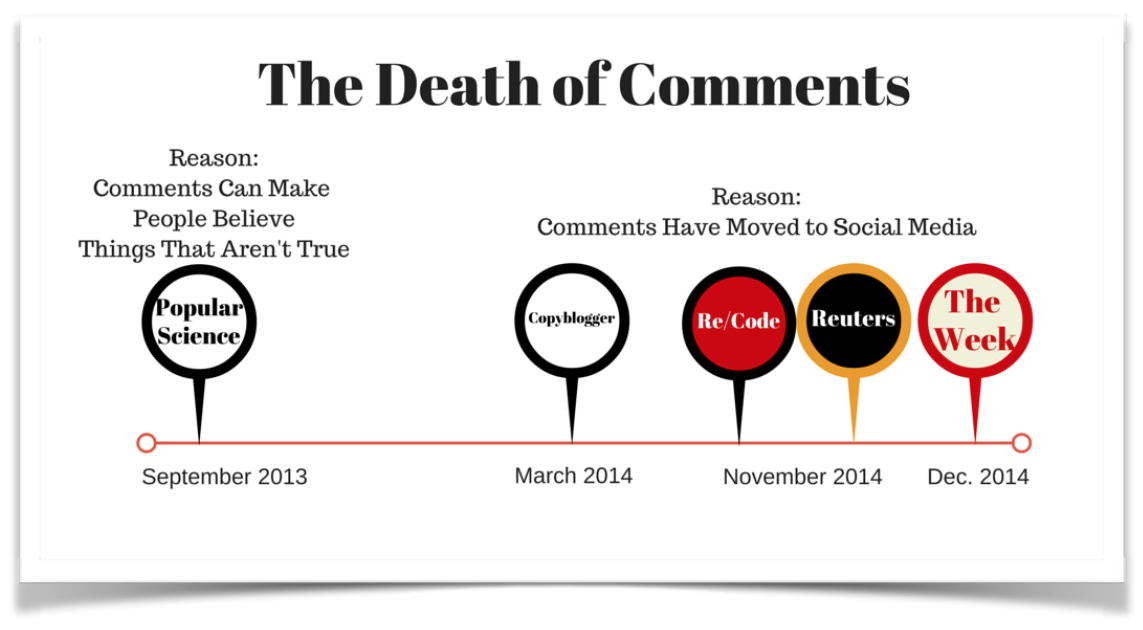Today, The Week announced that it is eliminating comments on its site, noting that “[T]he smartest, most thoughtful, and most spirited conversations are being driven not by pseudonymous avatars in the comments sections of news sites, but by real people using their real names on the social web.” The move is part of what’s starting to look like a trend:
Although the sites that more recently eliminated comments note that meaningful conversations have moved to social media, their announcements also included musings about the vitriol that will be familiar to anyone who has run a website—or heck, read a website. It’s no surprise that there’s a popular Twitter account called Don’t Read Comments.
Popular Science had a more interesting reason for eliminating comments: Studies have shown that negative comments, even just ad hominem attacks, can make readers have a more negative view the technology covered in the story.
In the past, website managers believed that a vibrant comment section helped drive traffic to a site and build brand loyalty and community. Today, beliefs are changing.
More Reading
Disabling comments: a debate that cuts to the core of online news
Sources
- September, 2013: Popular Science “Uncivil comments not only polarized readers, but they often changed a participant’s interpretation of the news story itself.”
- March, 2014: Copyblogger “[T]he conversation moved to a wider public platform.” [They also make a great argument about how time-wasting it is to deal with spam.]
- November 2014: Re/Code “But we concluded that, as social media has continued its robust growth, the bulk of discussion of our stories is increasingly taking place there, making onsite comments less and less used and less and less useful.”
- November, 2014: Reuters “Much of the well-informed and articulate discussion around news, as well as criticism or praise for stories, has moved to social media and online forums.”
In April of 2014, the Chicago Sun-Times announced it was making a major change to its commenting system. “[A]s anyone who has ever ventured into a comment thread can attest, these forums too often turn into a morass of negativity, racism, hate speech and general trollish behaviors that detract from the content.”
Updates
- January 2015, Bloomberg removed the ability to comment on its website.
- October 2015, Reddit-related site Upvoted launched without commenting.
- February 2016, The Telegraph suspended comments on its site, directing readers to social media.
- August 2016, NPR disabled comments on its site saying it would rely on social media for audience feedback.
- February 2017, The Future of Comment (via Neiman Lab)

